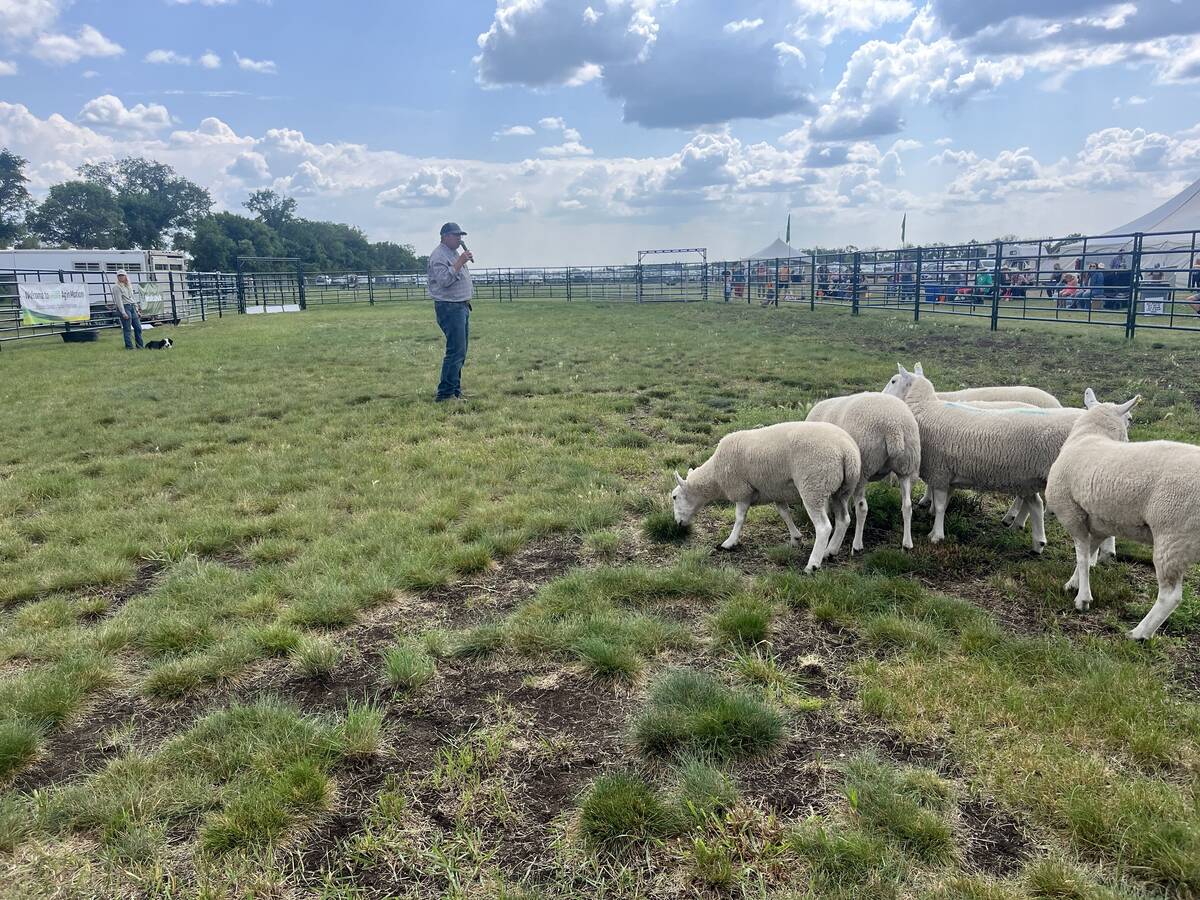Steve Johnson isn’t about to listen to the naysayers.
“You can’t do that,” he said. “If everybody did that, nothing would succeed.”
The Plentywood, Montana, farmer is a contract holder and avid supporter of Farm Corp Marketing International, a farmer-owned company based in Saskatoon that wants to negotiate a higher world wheat price.
Farm Corp officials say support from United States farmers is crucial to their plan’s success.
Some U.S. farm organizations say the plan will never sell south of the border, but Johnson disagrees.
Read Also

Stock dogs show off herding skills at Ag in Motion
Stock dogs draw a crowd at Ag in Motion. Border collies and other herding breeds are well known for the work they do on the farm.
He thinks the more U.S. farmers learn about the plan, the more likely they’ll be to climb on board.
“In my view it’s very much needed,” he said last week, adding that farmers have become too used to turning to government for help rather than taking action on their own.
Farmers have been able to scrape by in recent years, but the growing gap between low grain prices and high costs demands some collective action.
“If we don’t, there will be a lot go under,” he said. “At some point farmers will have to do it, so why not us?”
Johnson said he’s not surprised that leaders of established farm organizations are negative about Farm Corp’s prospects.
He’s not sure why, but he suggested a number of possible reasons: the major farm organizations tend to be run by older, established farmers, who aren’t interested in looking for untried solutions; they may have ties to agribusinesses that have an interest in maintaining the status quo; they may feel threatened by the rise of new grassroots organizations.
Farm Corp president Rick Pender said U.S. farm officials who dismiss the plan probably don’t know enough about it.
He acknowledged that Americans are sometimes skeptical when they first hear about it, but says that after they hear a detailed presentation and have a chance to ask questions, that skepticism disappears.
“It’s been a real pleasant surprise,” he said, adding U.S. farmers have signed contracts covering 100,000 acres, representing about five percent of the total acreage signed up.
Farm Corp has held two meetings in Montana and will hold more after seeding. The first was sparsely attended, said Johnson, while the second attracted a bigger crowd.
Most of the skepticism seemed to be based on the difficulty of getting farmers from around the world to work together. There was also some concern about the plan’s Canadian origins.
Farm Corp isn’t the only Canadian farm group trying to sign up U.S. members to take collective action to boost grain prices.
Focus On Sabbatical has added about 300 U.S. members to its plan to take land out of production in order to drive up prices.
Johnson, who had never heard of Focus, said farmers might be more reluctant to sign up to a land set-aside, but added he wishes them luck too.
“If they did find success, I would not be unwilling to go along,” he said. “I think the main point is we need to organize, and whatever name or reason it starts under, it’s a reason to talk and get some commitment from farmers.”
















